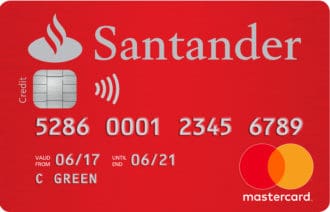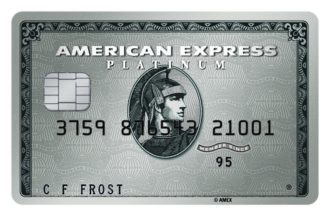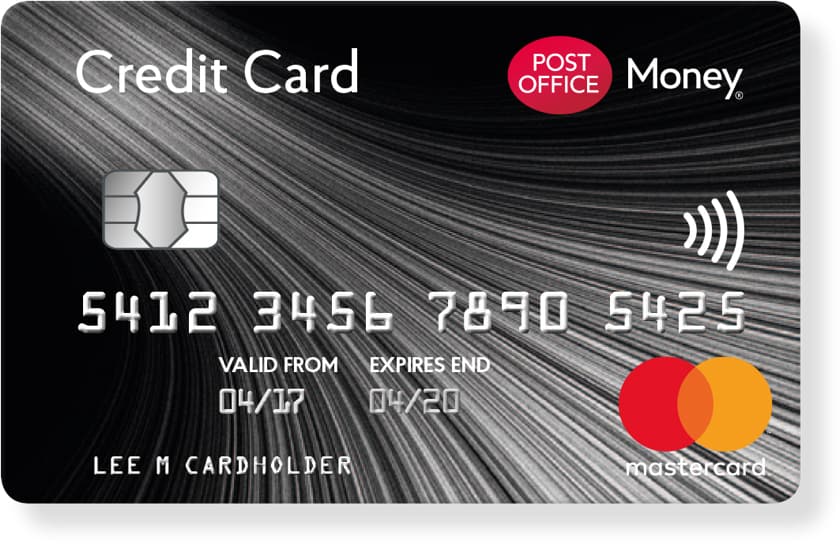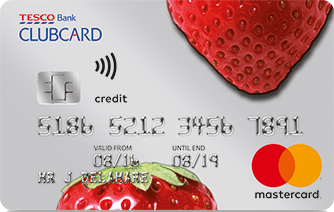Updated: 14th January, 2019
> Home > The Best Credit Cards of 2019
Our Top Credit Card Picks
We’ve searched the UK credit card market, and reckon these are some of the best deals around today. So take a moment to review our shortlist of the best credit card deals – for 0% credit, balance transfer, travel, cashback, rewards and more. Here are the Motley Fool’s pick of the best credit cards.
Our top picks at a glance:
- Santander Everyday Credit Card (Top pick: Balance Transfer)
- American Express Platinum Cashback Everyday Card (Top pick: Cashback)
- Post Office Platinum Card (Top pick: 0% Credit Card)
- Tesco Bank Foundation Credit Card (Top pick: Bad Credit)
Santander Everyday Credit Card
Top pick: Balance Transfer

Our Bottom Line
Santander’s Everyday Card stacks up really well against the competition. 27 months of 0% interest on balance transfers is on the longer end of the scale, especially without a fee on balance transfers. The three months of 0% interest on purchases is a bit shorter than some competing cards, but it’s still nice to get that 0% purchase period. As a sweetener, there are cashback awards available from companies like Costa Coffee, Subway, and Morrisons through Santander’s “Retailer Offers”.
Full Santander Everyday Credit Card review
Representative APR (variable):
18.90%
Balance transfer length:
27 Months
American Express Platinum Cashback Everyday Card
Top pick: Cashback

Our Bottom Line
Cashback rewards are hard to come by these days, but if that’s what you’re looking for, the American Express Cashback Everyday Card may be a good bet. The standard cashback yield is 0.5%, but for those that spend more than £5,000, that bumps up to 1%. New cardholders also get a bonus of 5% cashback over the first three months, which maxes out at £100. Its sister card offers a bigger up-front bonus and higher cashback, but the Everyday Card has the advantage of no fee.
Full American Express Platinum Cashback Everyday Card review
Representative APR (variable):
22.90%
Cashback yield:
0.50%
Post Office Platinum Card
Top pick: 0% Credit Card

Our Bottom Line
There’s a lot to like with the Post Office Platinum Card. The 28 months of 0% APR that you get on purchases is a nice, long duration. Plus you get the option of 0% for 18 months on balance transfers (though you will have to cough up a 2.89% fee for that). This is also a great card for travelers, since you don’t pay fees on purchases made overseas and can buy Post Office Travel Money with no fee.
Full Post Office Platinum Card review
Representative APR (variable):
18.90%
0% Purchase length:
28 Months
Tesco Bank Foundation Credit Card
Top pick: Bad Credit

Our Bottom Line
If you are looking for a credit rebuilder card that offers you more than just access to credit, the Tesco Bank Foundation Card does just that. It offers free access to Noddle Premium services and Tesco Clubcard benefits, as well as a comparatively low APR and manageable credit limits.
Full Tesco Bank Foundation Credit Card review coming soon!
Representative APR (variable):
27.50%
Credit limit:
Between £250 and £1,500
How we picked the 2018 credit card winners
We want to help you conquer your biggest money challenges and reach your financial goals. That is why our top picks have a few features in common that can help your money work harder for you, cut your costs, or help you get out of debt faster. The most important factors in our rating methodology are:
- Annual Fees. We’re looking for zero, or a very low, annual fee to keep your out-of-pocket costs low
- Introductory offers that give you 0% interest on purchases or balance transfers – these could help you get out of debt faster or allow you to spread the cost of large purchases
- Competitive ongoing APRs to help keep debt balances manageable
- Rewards that allow you to rack up points or cashback for just swiping your credit card
- Sign-up bonuses to give you an extra boost!
- Tools and credit-card features (like credit ratings and fee-free Travel Money) that help you manage your finances better
WHY YOU CAN TRUST US
As credit card enthusiasts, we don’t review or pick cards based on guesses. We’ve used many of the top credit cards on the market to score 0% intro purchase offers, earn cashback rewards, and rack up points at our favorite retailers. Together with our colleagues in the US, we’ve collectively analyzed hundreds of card offers on more than 6,000 data points, reading through the small print to find the very best credit cards the market has to offer.
Types of credit cards
Though there are many different credit cards out there, essentially all card offers can be divided into five different categories based on their features and rewards schemes. The first thing you should do when shopping for a credit card is to narrow the list of possible matches by picking a certain feature or benefit that is particularly important to you.
The five types of credit cards are as follows:
- 0% credit cards — These cards offer 0% intro APRs on purchases and/or balance transfers for periods that can exceed two years, allowing you to carry a balance without paying double-digit interest rates during the promotional period. These credit cards are best for people who will carry a balance since a 0% intro APR card can potentially save you hundreds (or even thousands) of dollars in interest.
- Cashback cards — Cashback credit cards give cardholders rewards equal to a percentage of their spending. Due to some changes in the market, it’s getting tougher to find good cashback cards today. A cashback rate of 1% is pretty great right now and offers below 1% are common. Introductory bonus offers or incentives that offer higher cashback rates for certain types of spending can boost the cashback rate. The beauty of cash back credit cards is that you can redeem your rewards for cash to use however you’d like. You can think of a 1% cash back rewards card as a card that effectively gives you a 1% discount on everything you buy.
- Rewards cards — Rewards cards typically accrue rewards in terms of points or miles for every £1 you spend and can be redeemed for spending vouchers, flights, hotels, and more. Points-based rewards credit cards are often tied to specific retailers, making them a great choice for shoppers who frequent that retailer. Travel-focused rewards cards also often have other benefits (such as no foreign transaction fees when used abroad or access to no-fee Travel Money) that 0% APR cards and cashback cards are less likely to have. Frequent travelers, especially international travelers, would be wise to have a travel credit card, even if only for the benefit of avoiding foreign transaction fees.
- Credit-building cards — These are designed for people who have no credit history or have bad credit. Credit-building cards typically have much higher APRs than cards for people with better credit, and often don’t come bundled with benefits like 0% intro APRs or rewards. However, that’s not always the case, and if you do your research, it’s possible to find credit-building cards that have nice benefits. The biggest benefit of all with these cards is right in the name: credit building. For those that use these cards responsibly, the result can be an increased credit score that can help them score a great 0% credit card or a fun rewards card. Student cards could be considered part of this category, since students typically have little to no credit history.
- Business cards — Designed for business owners and managers, these cards typically offer higher credit limits. Business cards are great for small business owners who want to separate their personal expenses from their business expenses while building a relationship with a bank that will help their business qualify for other types of financing later.
Why you should use credit cards
Credit cards are about more than just borrowing money. A credit card is a useful payment option that offers more convenience and fraud protection, while helping you build the credit necessary to qualify for other loans at the lowest possible interest rate.
Here are a few reasons why it makes sense to use a credit card for your ordinary daily purchases:
- Building credit — A credit card is a great way to help you build credit so that you can later qualify for financing to buy a car, home, or another large purchase. Most credit cards report to all three credit reference agencies (CRAs), so having an open credit card account is one of the best ways to start building up your credit report and credit score.
- Rebuilding credit — Late payments or collections accounts can haunt your credit report for years, dragging down your credit score the whole time. But having an open credit card account in good standing can help you rebuild your credit by “diluting” the importance of the bad accounts. It also shows that you’re current on your newest obligations, which can help you show lenders that you’re managing your finances better today than you did in the past.
- Fraud protection — It’s a simple fact that credit cards offer more fraud protection than debit cards. At the very worst, cardholders are only liable for up to £50 of losses if their credit card is used fraudulently, though most credit card companies simply eat the £50 loss rather than pass it on to their customers. In comparison, the worst case for debit card fraud is that you ultimately lose everything in your account.
- Rewards — When used responsibly, a credit card is simply a better way to pay than debit or cash. Think of rewards as an effective discount — if you use a 1% cash back card to make purchases, it’s like getting a 1% discount on everything you buy. Over time, even small percentages really add up!
- Extra perks — Many cards offer perks including no-fee Travel Money, purchase protection (in case a new toy gets stolen or damaged), and travel accident insurance. These little-known card perks can easily create hundreds of dollars of value for their cardholders. (You won’t find these perks on the average debit card.)
Which credit card is best?
One thing we want to make very clear is that picking the best credit card is a personal decision that should be guided by your financial needs. Though there may be a “perfect” credit card out there for you, there isn’t a single credit card that is perfect for every single person.
Which credit cards are the best depends on the features and functionality you want from your new card. Below, we constructed a table showing you the types of credit cards to pick based on why you want a credit card in the first place.
| You want to use a credit card to… | You could apply for… |
| Finance an upcoming purchase | A card with a 0% intro APR on purchases |
| Refinance existing credit card debt | A card with 0% intro APR on balance transfers. We give bonus points to cards that don’t have a balance-transfer fee. |
| Earn rewards on all of your spending | A flat cash back card that offers cashback or points on every purchase. |
| Travel abroad and redeem rewards for travel | A travel card that offers travel rewards and no foreign transaction fees. |
| Finance purchases for my business | A business card that has features designed for business owners in mind. |
| Build credit or repair damaged credit | It can be tough to get approved if you have no or poor credit. We look for the best options that are likely to approve those building or rebuilding their credit |
| Minimize the risk you get denied for a credit card | A secured card, which offers the highest approval rate (nearly 100%). |
How to compare credit cards
With so many choices, comparing credit cards can be overwhelming. But the truth is that only a few things really matter when making the decision between one card and another card. Here are some things to think about as you compare one credit card to another.
Cash or travel?
Rewards cards generally reward cardholders with points or miles that can be redeemed for cash or travel. If you don’t travel much, a cashback or points card is likely a better choice, since it is more flexible. Frequent travelers, however, may be better off with a travel card, which can offer higher rewards rates than cashback cards, as well as no foreign transaction fees on international spending. (Many cards charge a foreign transaction fee equal to 3% of amounts spent abroad, which can add up to £60 of unnecessary fees on £2,000 of international spend.)
Should you pay an annual fee for a credit card?
Cards that carry annual fees typically earn rewards at a faster pace than cards that do not carry annual fees. By doing some easy math, you can figure out whether a higher-earning card with an annual fee may be a better deal for you.
Imagine two credit cards. One has no annual fee and earns £0.005 cashback for every £1 spent. The second card earns 1p for every £1 spent but has a £30 annual fee. What we can do here is divide card two’s annual fee (£30) by the amount that its rewards rate exceeds card one’s rate (that is, £0.005). Which comes to £6,000. So if you spend more than £6,000 on your card annually, the higher earning rate for card two is the better deal, even though you’d pay an annual fee. If you spend less than that, you’re better off not paying the annual fee and going with the lower rewards rate.
We tend to think that cards with annual fees are only a good choice if you spend heavily, and will put the vast majority of your spending on just one card. It rarely makes sense to carry multiple cards with annual fees.
Cards for poor credit and credit-building cards
Let’s be honest here, when you’re in the process of building or rebuilding your credit there’s a better chance that you’re a bit skint. For that reason, we prefer credit-building cards and cards for those with poor credit that don’t carry extra fees. If you’re in a tough money spot, it’s better to avoid stacking extra fees on top of it all!
Expect that most credit cards available to those with poor or no credit will have much higher representative APRs than those for people with good or excellent credit. Even so, looking for the lowest APR that you can find is a good idea. Better still is to look for a card that offers a 0% introductory period for purchases or balance transfers. These aren’t common, but they are out there.
Business cards are all about your credit
We haven’t found many major differences between the top business cards, other than their credit score criteria. Some cards are designed for people who have merely “good” credit, while others are only offered to people who have excellent credit. Of course, other factors come into play for approval — your income can be just as important as your credit score when you apply for a new card.
Is a credit card right for you?
Though around 60% of adults in the UK have a credit card, they aren’t for everyone. On one hand, they can offer excellent benefits that include rewards on every swipe, welcome bonuses, fraud protection, and 0% intro APRs for new cardholders. But if used to spend beyond your means, a credit card can put you into costly credit card debt that will take months, if not years, to pay off.
If you’re considering taking out a credit card, consider carefully all of the below. You should probably be able to answer “yes” to all of them.
- You won’t use it irresponsibly — Credit cards are not free money. If used responsibly, you’ll never pay a penny in interest or fees by using a credit card. That means making sure that you always pay your balance in full each month. Carrying a balance is a really good way to get into financial trouble since balances are charged interest at rates in the double digits.
- You can manage another due date — Failing to make payments on time and in full can result in paying late fees and interest charges. If a payment is more than 30 days late, it can negatively impact your credit score, too, doing more harm than good. If you’re someone that has a consistently tough time keeping on top of deadlines and due dates, a credit card may not be a great idea.
- You have predictable, recurring income — Credit card companies require that your household have some kind of income in order to approve you for a card, but having income is also important for avoiding credit card debt. Unstable or unpredictable income is one of the biggest reasons people fall into debt.
- You won’t need to get a big loan in the near future — If you’re thinking about applying for a mortgage or other large loan in the next six months, you might want to reconsider applying for a credit card now. People who have thin credit files may see their scores drop after applying for more credit and may run into trouble explaining their recent credit inquiries. The best time to start building credit is, unfortunately, when you’re least likely to need a good credit score in the next few months.
Return to our top credit cards for 2019
5 Things You MUST Check Before You Apply For A Credit Card
Thanks to the research we’ve done for you, you should have a good idea of which credit card suits your needs best. Now there’s just one more important page you need to read: “5 Things You MUST Check Before You Apply For A Credit Card” is a special report from The Motley Fool, and it’s completely free!
This expertly prepared report will inform you how to repair your credit history, explain why your credit report may contain errors and how you can fix these, as well as guide you through exactly how the UK credit scoring system works and why you need to understand it. All that’s left to do is click here for access, and it won’t cost you a penny!
The Motley Fool receives compensation from some advertisers who provide products and services that may be covered by our editorial team. It’s one way we make money. But know that our editorial integrity and transparency matters most and our ratings aren’t influenced by compensation. The statements above are The Motley Fool’s alone and have not been provided or endorsed by bank advertisers. The Motley Fool has recommended shares in Lloyds, Tesco and Barclays.
The Motley Fool Ltd is an Appointed Representative of Richdale Brokers & Financial Services Ltd, (FRN: 422737) for acting as a credit-broker, not a lender, for consumer credit products.